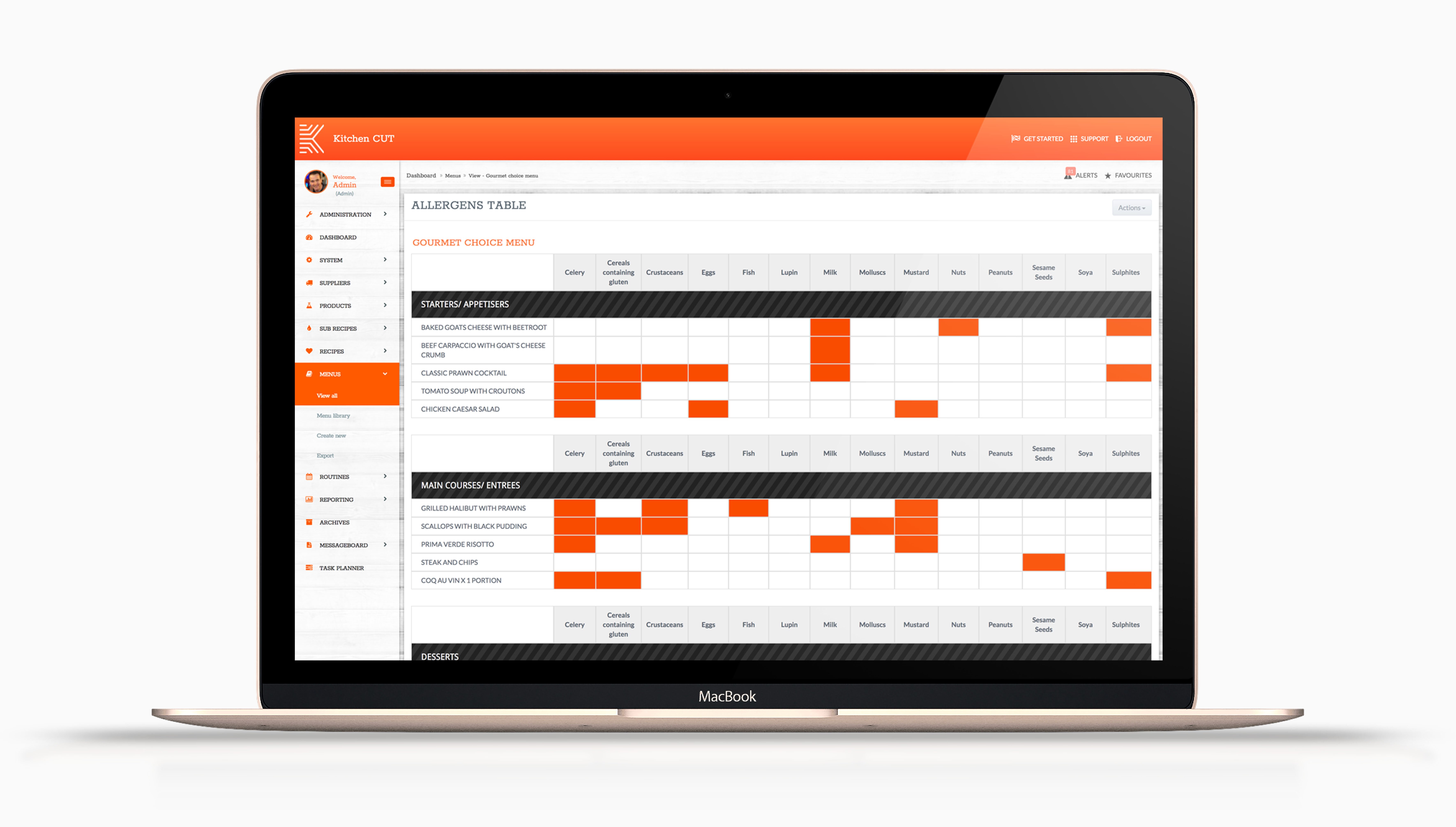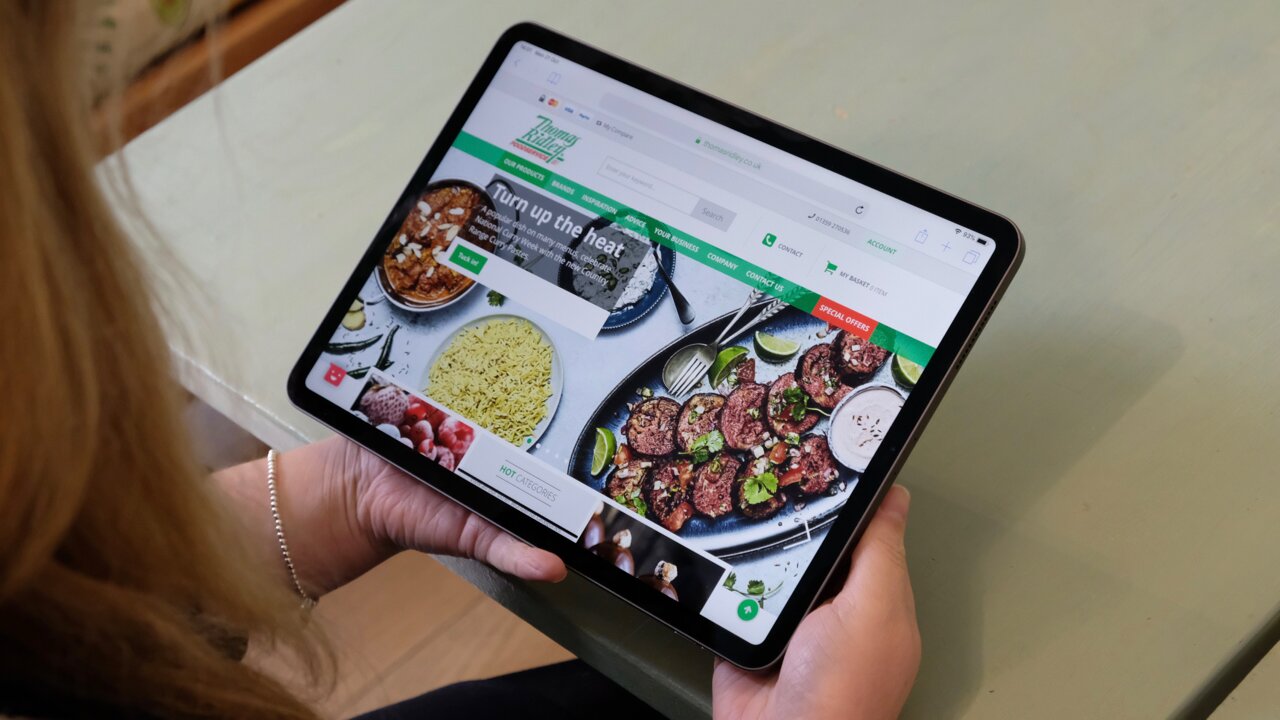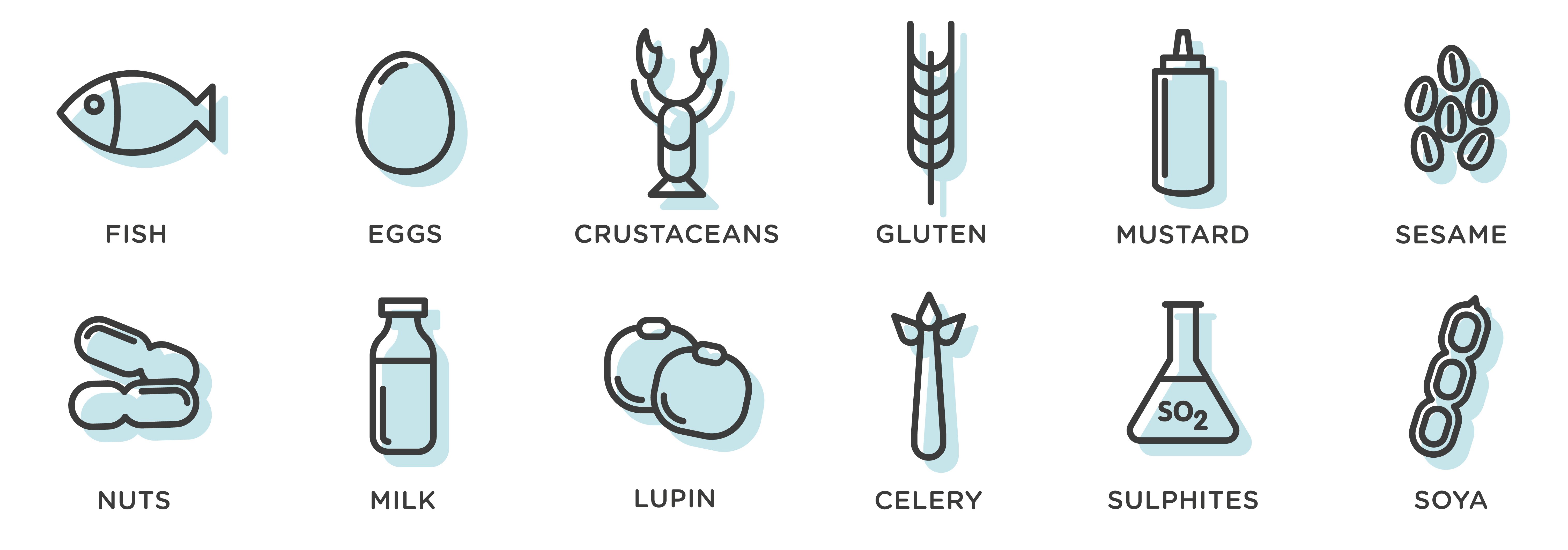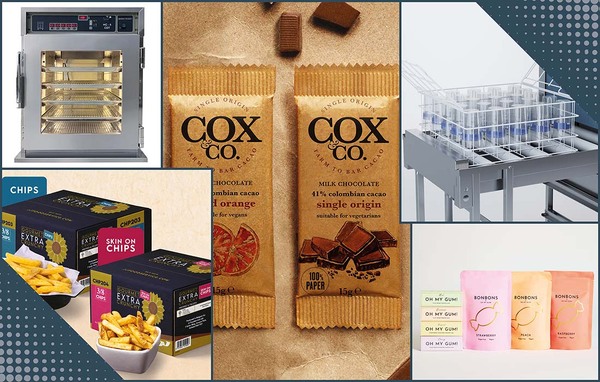On the safe side: making allergen management a breeze
When it comes to allergens and special diets, confidence and knowledge is key. Angela Frewin takes a look at the suppliers and products that can put your guests at ease
Gone are the days when allergen requests were few and far between and focused mainly on dairy and shellfish. Caterers now face a world where 20% of the UK population (and 44% of all adults) suffer from one or more food allergies, according to Allergy UK. Any lapses in managing and communicating the presence of the 14 potentially life-threatening allergens can mean unlimited fines or even imprisonment.
The free-from market has grown by 20%-30% year-on-year for some time – a trend that Hamish Renton, managing director of food and drink consultancy HRA Global, expects to continue. While Renton estimates that 60% of free-from foods (dominated by gluten- and dairy-free) are bought by lifestylers who perceive them as healthier options, it’s the diners with medical conditions that have catapulted allergens into a cause célèbre for caterers.
Stringent kitchen hygiene, staff training and technology are all vital tools in keeping food and customers safe, but research paints a patchy picture of current practices and confidence.
“It is all too common to see the same products presented on one menu with different allergens for each listing,” observes Kitchen Cut founder John Wood. These inconsistencies may explain why the Food Standards Agency found that 64% of 16- to 24-year-olds with food allergies have avoided eating out in the past six months.

A recent survey of hospitality operators by hospitality software provider Access Hospitality found that 87% of respondents knew the ingredients in the food coming into their kitchens, but only 44% said allergen information was updated automatically when a product was changed. While 47% were confident they were giving accurate allergen information to customers, another 48% were concerned about how their business managed allergens.
“It is all too common to see the same products presented on one menu with different allergens for each listing”
###Knowledge is power
Suppliers are working hard to provide hospitality operators with both free-from products and allergen data.
“The Essential Cuisine position is that it’s incumbent on responsible suppliers and manufacturers to help working kitchens overcome allergen challenges,” says Jonathan Harvey-Barnes, senior development chef at the stock specialist. “That’s why we not only supply more than 20 products that are completely free from declarable allergens, but we have also sought to remove the gluten from every product in our range.”
An innovative allergen check and comparison feature makes wholesaler Thomas Ridley Foodservice’s recently updated website a “game changer”, says sales director Steve Lyons. The allergen check gives customers a list of all allergens in a product, while the comparison feature allows them to review allergens, ingredients and nutritional data – and to filter product selections to their requirements.

Software can keep operators abreast of supplier’s ever-changing ingredients lists. Kitchen Cut’s allergen software receives an allergen/“may contain” profile for each product direct from the supplier, which feeds automatically into every recipe and menu.
“Businesses are then able to create easy-to-view allergen tables and embeddable digital menus via their websites, so that customers can browse and filter to see which dishes they can eat based on their preferences/allergies,” says Wood. “Knowing that accurate, efficient software is in use to manage allergens also builds confidence that the information is live and up to date and not an outdated printout from a few weeks ago.”
Similarly, Access Hospitality’s Procure Wizard technology reflects supplier-inputted data in recipes and menus, with specific information available at point of order through hand-held devices. However its research found this is currently used by just 14% of operators, while 71% still use manual processes, with 62% using paper to update customers on allergens .
###Clean and safe
Strict kitchen hygiene – including segregated work surfaces, utensils, storage and even cooking oils for free-from dishes, along with lots of hand and utensil washing – can help prevent cross-contamination of food prepared on-site.
Caterers can check the efficiency of their kitchen cleanliness with tools such as Neogen UK’s Reveal 3-D allergen test (pictured below), which can detect low levels of almond, coconut, crustacean, egg, gluten/gliadin, hazelnut, mustard, peanut, sesame, soy, and milk in rinses and environmental swabs in 10 minutes or less.

The food safety products and services specialist also offers a Reveal for Multi-Treenut lateral flow test that can expose the presence of almond, hazelnut, pecan, walnut, cashew and pistachio, singly or in combination.
Staff training is key to creating a safe environment and customer confidence. Research by software provider Fourth found that one in six hospitality employees did not receive regular training or updates about allergy issues. While 35% said the training helped them cope, 31% were unsure what action to take and 4% admitted to panicking. CGA’s recent survey of hospitality bosses revealed that allergen training was conducted daily by 19%, weekly by 18%, monthly by 37% and biannually by 14%.
The Food Standards Agency offers free basic level training online, but frontline staff and managers require more advanced information, advises Mike Williams, operating director at food health and safety consultancy Food Alert. In response to a sharp rise in demand for food allergen training in the past year, it has created bespoke training for hospitality brands with partner Flow.
“The allergen challenge is one of the most pressing issues the hospitality industry faces”
“The course coaches staff to recognise signs and symptoms of allergic reactions, deal with customer queries and understand the food allergens that relate to their particular place of employment and not just a generic list, which makes for a more advanced and tailored understanding,” explains Williams.
“The allergen challenge is one of the most pressing issues the hospitality industry faces,” concludes Stewart Maranello, senior solution consultant at Fourth, which is working with key players to identify a series of best practices that will be published later this year.
“We see this as an issue that requires industry- wide collaboration, adopting a widely agreed consensus to help raise awareness, not only among staff members, but making consumers feel confident and safe when eating out.”
##Allergen snapshot
A recent survey of 500 hospitality food workers and 1,000 consumers by hospitality software provider Fourth found that:
Customers
89% felt operators needed to be more aware of allergies.
73% were not asked if they had allergies on their last trip to a restaurant.
36% were served ingredients and items that were not listed on the menu.
Hospitality workers
68% require more information about allergies.
23% are not confident about advising customers with serious allergies.
58% worry when customers ask if food contains certain ingredients.
40% could name the top 14 allergens.
Hospitality bosses
CGA’s quarterly Business Confidence Survey of 130 pub and restaurant group leaders found that:
64% regard allergen procedures, protocols and staff training as a major focus or the biggest single challenge facing their business.
78% viewed technology as important or fundamental to tackling allergens.
33% were only relatively confident about their current procedures; 63% were confident, or absolutely confident.
##Mainstream and multi-dietary

The plant-based sector is booming and research by Sainsbury’s predicts that 25% of Britons will be vegan or vegetarian by 2025, with nearly 50% following a flexitarian diet.
Quorn has transformed its versatile mycoprotein into vegan fillets (with a salt and vinegar batter or a lemon-pepper breadcrumb) as a fish and chip replacement to target the trend for vegan fast food.
“Increasingly, operators are looking for items that will suit a variety of dietary needs as it helps to avoid menu proliferation and to keep a tab on costs,” observes Gordon Lauder, managing director at frozen food distributor Central Foods. Its new KaterVeg Moroccan-style cauliflower bites combine a current hero of plant-based menus with a coating of spiced quinoa breadcrumbs to satisfy the gluten-intolerant.
All of the 14 reportable allergens are excluded from foodservice supplier Bidfood’s new Simply Puree and Simply Puree Junior lines of nutritionally balanced, texture-modified pre-prepared meals for people with dysphagia (or difficulty swallowing).Conceived to restore ‘mealtime dignity’ and mealtime variety to care homes and hospitals, the dishes are made to home-cooked standards to cover all day parts.
Simply Puree is the first sub-brand in Bidfood’s new Simply Food Solutions division following its acquisition of the Punjab Kitchen and its extensive choice of ready-to-plate meals, from healthcare to à la carte, halal to vegetarian, across a wide range of world cuisines.
##Natasha’s Law
Caterers have been required to warn customers about allergens since 2014 and, from October 2021, cafés and delis will have to label all ingredients in food that is freshly made and pre-packed on-site for direct sale under Natasha’s Law – named after the teenager who tragically died after consuming unlabelled sesame in a Pret A Manger baguette in 2016.
With definitive guidance from the Food Standards Agency unlikely much before the summer, Rob Henry – quality assurance manager at E-food’s Catercost brand – advises operators to take steps now towards compliance:
Ensure all staff have current allergen training from an accredited training partner.
Install systems that can cater for last-minute ingredient changes, such as live QR codes.
Clearly signpost allergen information.
Have clear and concise labels linked to Natasha’s Law requirements.

The 14 legally identifiable allergens are: egg, celery, crustaceans and molluscs, fish, gluten (cereals such as wheat, rye, barley and variants), lupin, milk/dairy, mustard, peanuts and tree nuts, sesame, soya, and sulphites/sulphur dioxide.
##Contacts
Access Hospitality www.theaccessgroup.com/hospitality
E-Foods/Catercost www.e-foods.co.uk
Central Foods www.centralfoods.co.uk
Essential Cuisine www.essentialcuisine.com
Food Alert www.foodalert.com/
Fourth www.fourth.com/en-gb/
KitchenCut www.kitchencut.com
Neogen UK www.neogen.com/uk/
Quorn www.quornfoodservice.co.uk
Simply Food Solutions www.bidfood.co.uk/our-products/our-range/simply-puree/
Thomas Ridley www.thomasridley.co.uk
Photo credit: Shutterstock



















